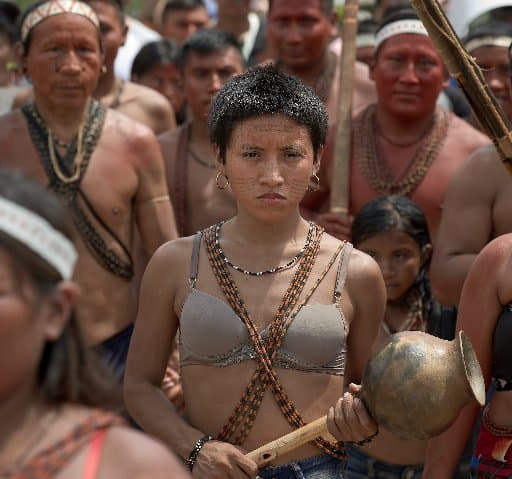SÃO PAULO — A member of the São Paulo archdiocesan justice and peace commission said he hoped Pope Francis’ message about “walking together” with Indigenous will be heard throughout Brazilian society, and he said it strengthens the church’s work.
Pope Francis apologized to Canadian Indigenous for their treatment at residential schools, many of which were run by the church, and Marcelo Zelic, a member of the São Paulo commission, said he hoped it could inspire Brazilians “to get involved in our country to stop violence against Indigenous peoples.”
“A request for forgiveness from the church for violations against Indigenous communities is important in the context of the entire Brazilian society, a society that has deep-rooted discrimination against its Indigenous people,” Zelic told CNS.
Much of the violence concerned land rights.
“In the colonial days, the priests went into Indigenous lands, created a space around where they were, brought the Indigenous people there, and released all the lands around them for development (by whites). There was a disrespectful development of the Indigenous land,” Zelic said.
This cycle of violence against Indigenous peoples in the country is repeated to this day with the illegal appropriation of Indigenous lands and the nonrecognition of Indigenous lands, now by the state, Zelic said.
In 1972, during Brazil’s military rule, the Brazilian bishops’ conference created the Indigenous Missionary Council, known by its Portuguese acronym as CIMI, to defend the Indigenous populations. According to Zelic, it was a trial-and-error process.
“At first, they (priests working at CIMI) tried evangelization; then they saw that they were wrong, changed their behavior and started supporting the Indigenous in what these people really wanted,” he said.
“CIMI is the (Brazilian) church’s own apology for her actions,” said Zelic, adding that the council has been operating for decades and is one of the loudest voices denouncing violence against Indigenous in the country, but often is questioned by more conservative sectors within the bishops’ conference and within the church hierarchy.
Zelic said the pope’s position in this regard can strengthen and defend entities like CIMI from the more conservative sectors of the church in Brazil.
“I think it’s very important for Pope Francis to take a stand on this. This (apology) strengthens CIMI and its work. It strengthens … actions taken by the church today. This may also call sectors of the church which are not normally involved in Indigenous issues to discuss these issues,” Zelic added.
“Pope Francis’ action promotes engagement, understanding and also questions about the issue of Indigenous people in Brazil today,” said Zelic.
Antonio Eduardo Cerqueira de Oliveira, executive secretary of CIMI, congratulated Pope Francis for his July 25 apology.
He said the apology “signals the current moment, a moment of respect, of coexistence, a moment of being together for the benefit of the common home, for the benefit of life.”














